‘I rewired my brain’: Airtree co-founder Craig Blair on the shocks which shape his attitude to life
Asked whether wealth has changed him in the 10 years since starting VC giant Airtree, Craig Blair says he’d be a fool to say it hasn’t. But other forces have left their mark too.
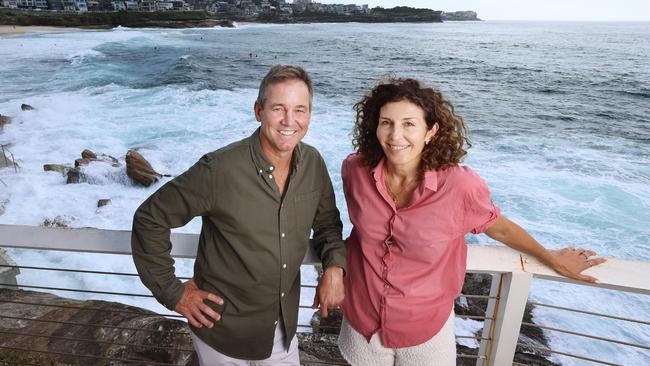
Last year, 2023, was a watershed year in the life of Craig Blair.
The co-founder of Australian venture capital giant Airtree Ventures, which this year celebrates a decade in business, says he took the opportunity to “stop and breathe”.
Over a 10-week long-service break, he travelled to the island of Sumba in Indonesia, the country in which he spent nearly two years of his childhood, where he had learned to speak Bahasa and attended the local public school.
Back then, as the only “white kid” among thousands in Indonesian suburbia, he went fishing in the gutters with the locals and was confronted by the brutal reality of racism.
His second international adventure last year was to Kenya and then the Democratic Republic of the Congo, where an old family friend runs the local UNICEF operation in the capital, Kinshasa.
“We went out with several missions and saw what it was like in the slums, the jungles and some of the camps set up on the borders. We saw life in an economy where people live on $1.90 per day,” Blair says.
Then when he returned to Sydney in July, tragedy struck.
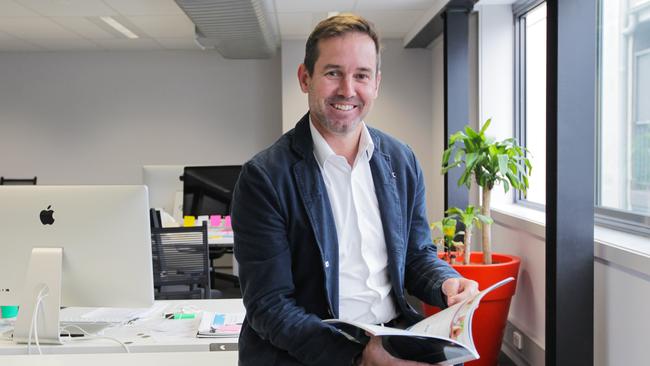
Two of his closest friends were killed in a boating accident not far from his family home in the beachside suburb of Bronte. One left behind two teenage children, the other three under 12.
It brought home to Blair, in brutal fashion, the sanctity of life.
“That was all consuming. For me it is as close as I have ever been to death. It was a real wake-up call,” he says.
“This really brought home that life can end tragically.
“I always thought how important friends are. Friends take decades to develop through love and shared experiences, and often friends will be deeply flawed characters but that is what makes them special. You’ve got to really value those things because they don’t last forever.”
Two months later, Blair was hospitalised with a potentially deadly “golden staph” bacterial infection in his leg during a visit to Ireland to see his wife’s family. He spent a month in recovery.
“I don’t really get fazed by those things. But when you find out what you have, it is really dangerous,” he says, noting someone in Sydney died last year after contracting the same infection.
“You realise, ‘Oh, this is really a big deal. There’s somebody else in my position who life has given a different answer.’ This gives us another example of how close these things can go.”
Blair was naturally wired for getting through difficult situations.
A country kid at heart who grew up with his five siblings on a farm near Armidale in northern NSW, he moved to Sydney to start a career in civil engineering before stints in strategy consulting, investment banking and then venture capital.
His country heritage has made him authentic, rounded and direct. He says he gives and takes “no bull...t”.
But what really shaped the resilience of the now 55-year-old was an experience in his youth which he shares publicly for the first time.
At the age of 18, during his first year of university studies, he was out with friends when he suddenly collapsed, lost feeling on the right side of his body and couldn’t speak.
He was rushed to the emergency department of the nearby Royal Prince Alfred hospital where he was diagnosed as having suffered a stoke caused by cerebral venous sinus thrombosis – when a blood clot forms in the brain’s venous sinuses.
“My parents had to fly down to be with me and I didn’t know if I would walk or talk again,” he recalls.
“The doctor’s prognosis was that it could be permanent, that I could be in a wheelchair for life. I have never seen my mum or dad looking so worried.”
Blair was given anticoagulants which help prevent blood clots, and with the help of family, friends, physiotherapy, speech therapy and a positive outlook, he made a full return to good health.
His recovery focused on neuroplasticity, or the brain’s ability to change and adapt due to experience. Essentially it was rewired.
He was back playing competitive sport within six months and was able to sit his university exams that year.
“Today if you do a scan of my brain on the left hand side, there is a big dark patch. I tell my kids, ‘Imagine how smart I would be if it wasn’t there!’,” he says with a wide grin.
“But seriously, I still have effects from it. I get tired and my productivity late at night is not great. I am also a world class mumbler at the best of times, but I think the stroke made it worse.
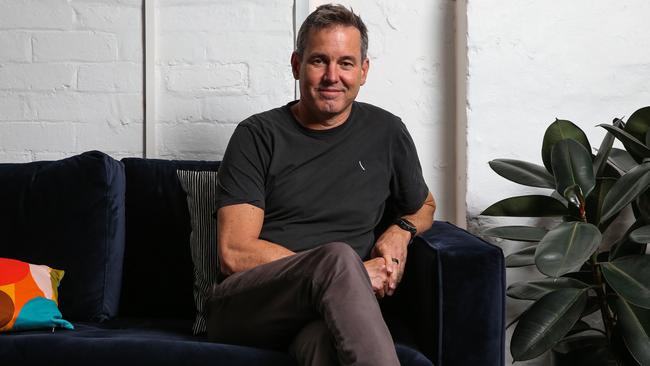
“I have had so many interventions on my speech. I speak too fast, it is a quick brain thing. You throw a stroke into that, it doesn’t help.”
He is sharing his experience for the first time, not to highlight prevailing over hardship but to give context to his career and life.
“After that I knew I needed to take more risks to try and find new frontiers and interesting parts of life,” he says.
“You only get one chance at this so make the most of it. One of the attractions of venture capital is understanding when to take risk and to de-risk. My experience has definitely helped me understand that.”
Going through such an ordeal as such a young age led Blair to encourage his three children to try new things.
He has done what he calls a “coming of age” trip with all of them ahead of their teenage years. Earlier this year it was a diving trip with his 12-year-old daughter – his youngest – to Lord Howe Island.
He previously did a hard-core hunting trip in New Zealand with his eldest son, then walked the Routeburn Track in NZ’s Southern Alps with his middle daughter.
These experiences were about teaching his kids to embrace nature and risk.
“You only live once,” he says, before adding, tongue-in-cheek: “My wife and I joke with the kids that we want to see a few scratches and even the odd broken bone. But you aren’t allowed to die!”
Australian technology sector’s renaissance
Blair and tech entrepreneur Daniel Petre founded Airtree in 2014 with an initial $60m fund.
It has since invested in famed firms like tech unicorn Canva, Pet Circle, Go1 and Employment Hero; in the latter Airtree has recently been caught in the middle of a power struggle between the CEO and industry fund giant Hostplus.
Airtree’s holdings across its portfolio are now worth more than $2bn and it has delivered hundreds of millions of dollars in investor returns.
While Petre has not been actively involved in the business for four years, Blair has stayed at the forefront of the management along with a number of new, younger partners. In the early years of Airtree he says he learned plenty from Petre’s ability to be decisive.
“We had complementary skill sets to get us going. In life you are either decisive or thoughtful. Each one of those is good for different situations,” he says.
“So having a mix of decision making around the table is really useful. Starting a business is really hard, so having someone to share the tricky questions with is important.”
He believes Airtree’s 10th birthday celebrates an enduring venture firm that has gone through cycles and helped lead the renaissance of the Australian technology sector.
Its next decade will follow a similar playbook.
“We still have to earn the right to be here. In venture capital you really only get the right to keep existing if you deliver top quartile returns,” Blair says.
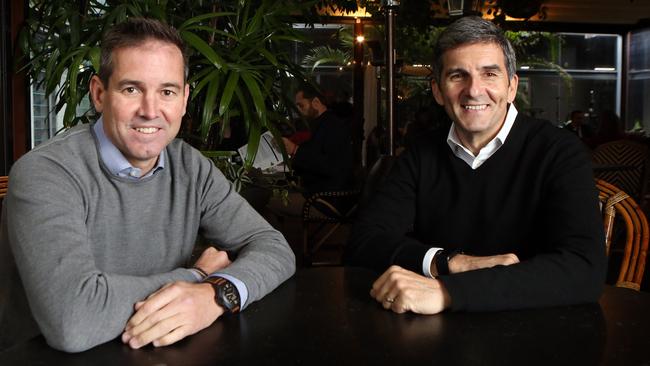
“You only do that by making sure you have a good brand to attract the best founders and pick the right companies to invest in,” he says.
“We also have to keep exiting companies and providing liquidity back to our investors, which is something we’ve always been pretty good at.”
Blair is excited about the prospect of new sectors emerging from the artificial intelligence revolution, and is optimistic it can be appropriately regulated.
“We need to be seriously thinking through the appropriate risk management and the legislation that is required,” he says.
“I feel optimistic that government can play a positive role in that. But I think history says that more jobs will be created than lost.”
One of Blair’s biggest regrets was giving up playing music at a young age. At school his parents forced him to take up the clarinet, which he detested and abandoned.
“It is the ancient medium that still moves our souls and I’d love to be able to jam with my musical friends. To make up for not being able to do that, I try and say yes to every chance to catch a band, and we go to one music festival every year as a family,” he says.
“Music is a profound form of art. Anywhere you can see the role music plays in families and society.”
He is a voracious reader of fiction and is currently working his way through the Booker Prize list.
As a supporter of the Sydney Writers’ Festival, he encourages people to read fewer business books and instead more fiction, claiming the latter “is a good way to understand empathy and develop imagination”.
Work continues to be Blair’s priority. He still wants to be at Airtree “for a very long time”.
But he is also now an active philanthropist through the Blair Caffrey Foundation – established with his wife, marketing consultant Melanie Caffrey – which supports Indigenous, women’s and humanitarian causes, and the arts.
Its genesis harks back to Blair’s childhood living in Indonesia, seeing first hand the havoc wreaked by cholera and malaria epidemics, and later seeing the tragedy of Indigenous disadvantage in Armidale.
Asked whether wealth has changed him – in April last year he and Caffrey paid $29.25m for the Bronte, resort-style home of Cygnet Capital’s Darien Jagger – Blair replies: “I’d be a fool to say it hasn’t changed me. It has to change you somehow.”
But he quickly adds: “I think my wife and I, who also didn’t come from this sort of wealth, we’ve worked very hard at good, honest stuff.
“Being good humans, being good neighbours, not getting ahead of ourselves and looking after others.”
Blair now wants to help tech founders think more deeply about philanthropy.
“At Airtree we talk about developing the next generation of VC investors as part of building an enduring firm,” he says.
“But the next question is, ‘How do we foster a passion for giving in the next generation of founders becoming wealthy and successful? How do we help them think about giving at the right time’?”
The terrible accident of 2023 and its fallout is still raw for Blair. Another of his good friends also died just recently.
At that funeral, he was deeply moved by the reading of a poem titled The Invitation by Canadian author Oriah Mountain Dreamer.
In it, she defines what she is looking for in life and everything she doesn’t care about. The poem is said to be an invitation to be authentic, vulnerable and honest. To be fully present in one’s own life.
“I was like ‘Oh my goodness’ when I heard that poem,” he says. “I’m in a period now when unfortunately people I know are dying, including taking their own lives.
“What that poem reminded me is it doesn’t matter how much money you’ve got, or what you do for work, or where you went to school. What matters is the person that you are underneath it all.”





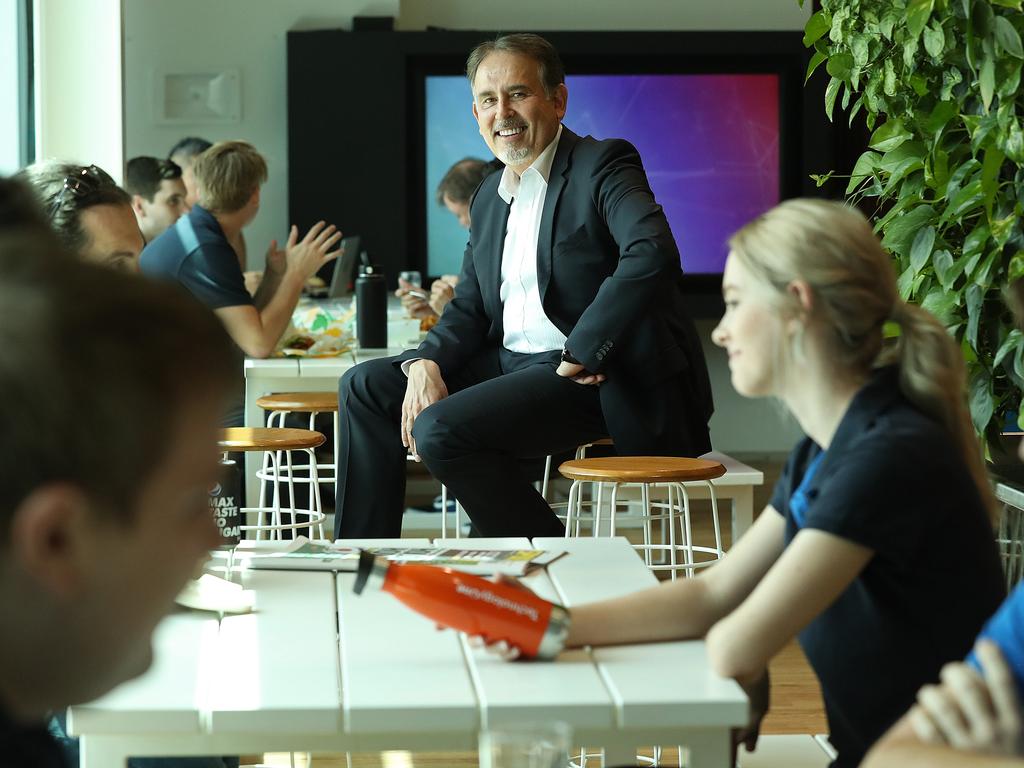
To join the conversation, please log in. Don't have an account? Register
Join the conversation, you are commenting as Logout